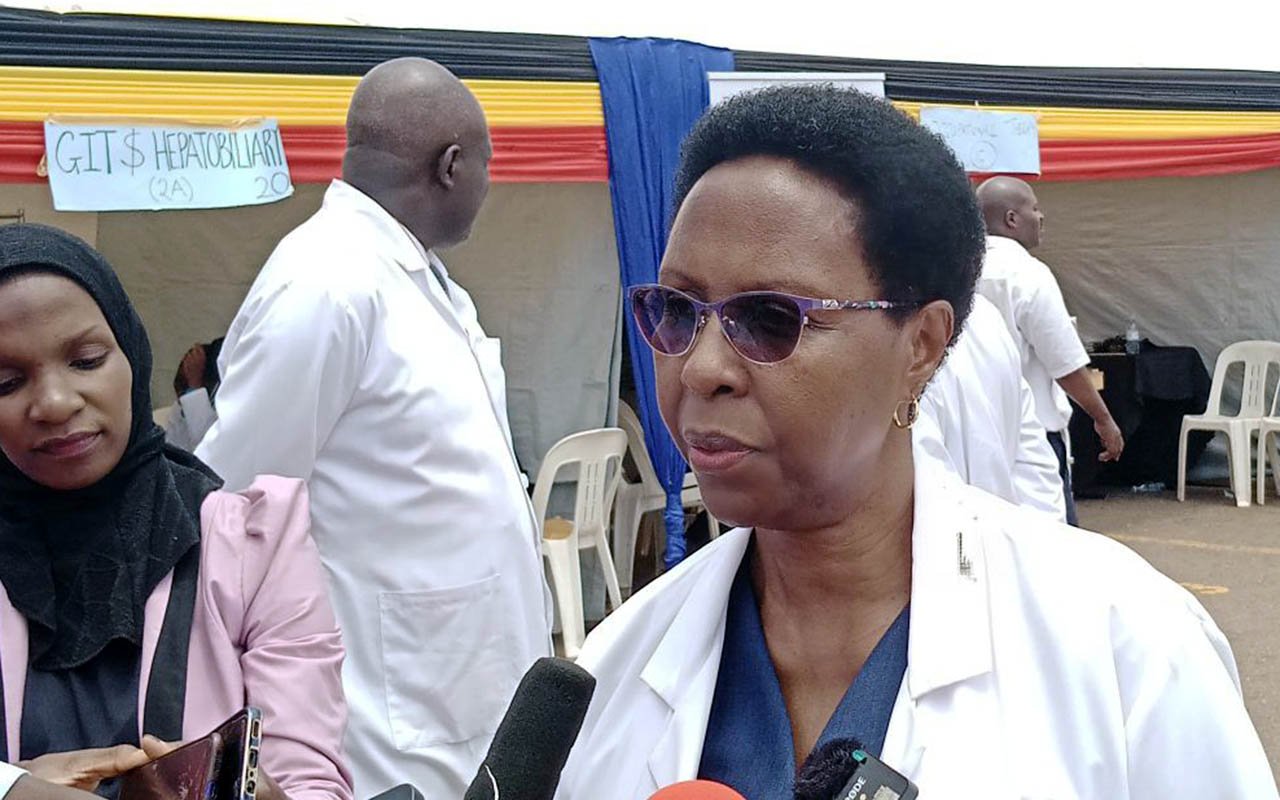Prime
Mulago Hospital unveils advanced surgical procedure

Health workers perform and endoscopy at Mulago Hospital on May 21, 2024. PHOTO/TONNY ABET
What you need to know:
- According to health experts, the conditions that can be handled with this type of surgery include cancer and other diseases or conditions affecting the heart, lungs, intestines, stomach, liver, ovary, and uterus.
The Health minister has launched the minimally invasive surgery at Mulago National Referral Hospital that will involve smaller incisions, shorter recovery time and minimal scars.
Dr Jane Ruth Aceng said the surgery exercise and a state-of-the-art endoscopy centre is a significant milestone in the country’s healthcare.
“This initiative aligns perfectly with our national health priorities, particularly in strengthening our surgical capacity and improving patient outcomes. It also reflects our dedication to embracing modern medical advancements to meet the evolving needs of our population,” she said during the launch on Tuesday.
“This initiative is about improving the lives of our patients. By providing access to minimally invasive surgical options, we are offering our citizens the best possible care, enhancing their quality of life and ensuring better health outcomes,” she added.
In traditional open surgery, a surgeon makes one large cut to see the part of your body that they are operating on, meanwhile, in minimally invasive surgery, the surgeon uses small tools, cameras, and lights that fit through several tiny cuts in your skin. This allows the surgeon to perform surgery without opening a lot of skin and muscle.
According to health experts, the conditions that can be handled with this type of surgery include cancer and other diseases or conditions affecting the heart, lungs, intestines, stomach, liver, ovary, and uterus.
Dr Rosemary Byanyima, the hospital director, who is also a radiologist, said the upscale of the minimally invasive surgery and the endoscopy centre was made possible through financial and technical support from the Government of the Republic of Korea.
An endoscopy, according to scientists, is a procedure done to examine structures inside your body up close, to detect diseases such as cancer.
During an endoscopy, a healthcare provider places a long, thin tube (endoscope) inside your body, usually through the mouth, until it reaches the organ or area such as the stomach or intestines, they need to check. Most endoscopes have a light and special camera at the end and the doctor sees what is inside the body in real-time through a computer monitor connected to the endoscope.
Dr Byanyima, in her speech read by the acting deputy director, Dr John Sekabira, said: “The minimally invasive surgery centre and endoscopy centre are game-changers in our healthcare delivery.”
“These technologies enable our surgeons and endoscopists to perform complex procedures with minimal incisions, reducing recovery time, scarring, and post-operative pain. This means our patients will receive more effective and compassionate care, and we will see improved health outcomes,” she said.
“These centres will also serve as training hubs for our healthcare professionals, enabling them to develop new skills and stay up to date with the latest medical technologies and techniques. This will not only benefit our patients but also enhance the overall quality of healthcare in Uganda,” she added.
Shs1.9b investment
The Ambassador of the Republic of Korea, Mr Park Sung-Soo, said in addition to the support of $500,000 (Shs1.9b) for the upscaling of the minimally invasive surgery and the endoscopy centre, they have also given $10 million (Shs38 billion) to Mulago National Referral Hospital to improve efficiency in service delivery and infection control.
“Uganda is one of Korea’s core partners in Africa and since the establishment of diplomatic ties in 1963, there has been a steady progression in our cooperation in various spheres like rural development, education and healthcare,” the ambassador said.
“The rise in life expectancy of Ugandans is a clear indication that there is a greater need for quality medical services. In line with this, our government gave $500,000 towards the improvement of minimally invasive surgery in Mulago Hospital. This comprehensive donation includes laparoscope, endoscope, surgical consumables, among others to ensure the hospital delivers quality healthcare to Ugandans,” he added.




